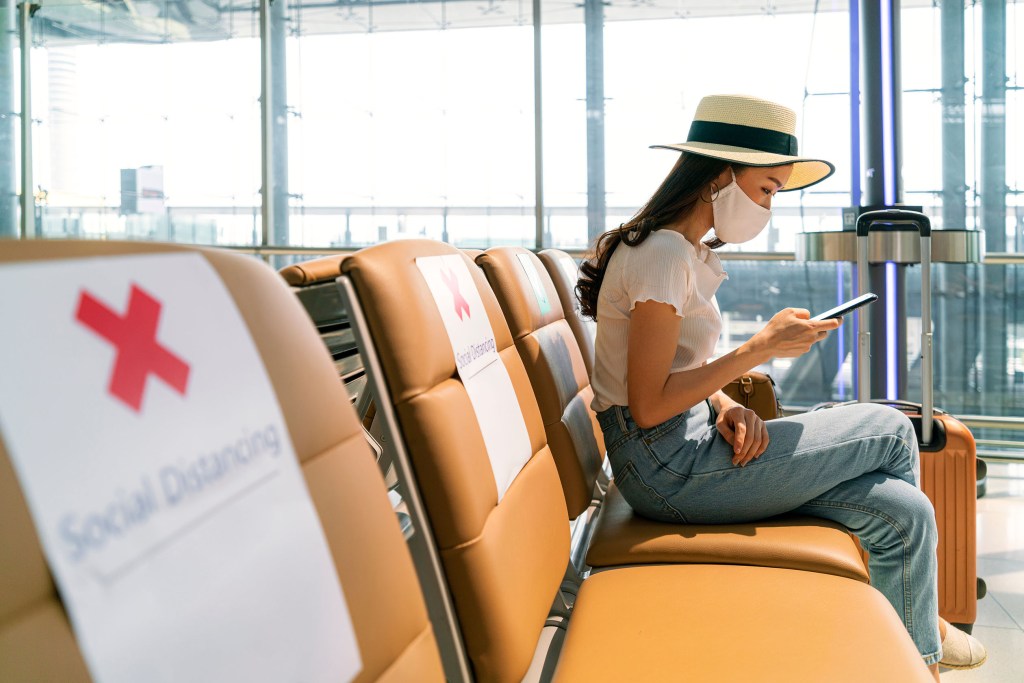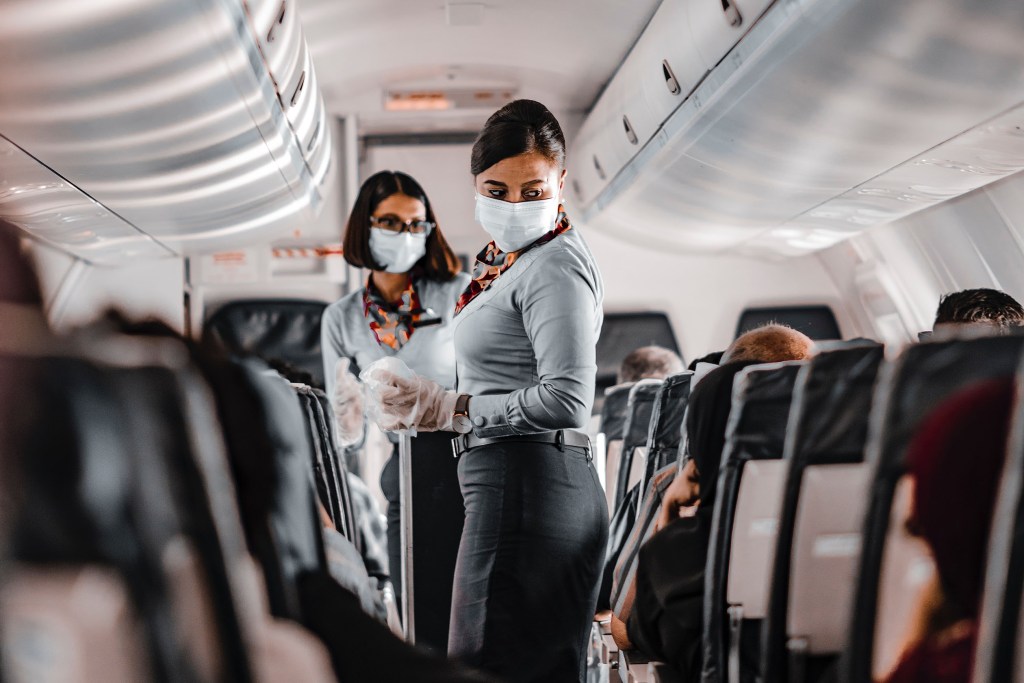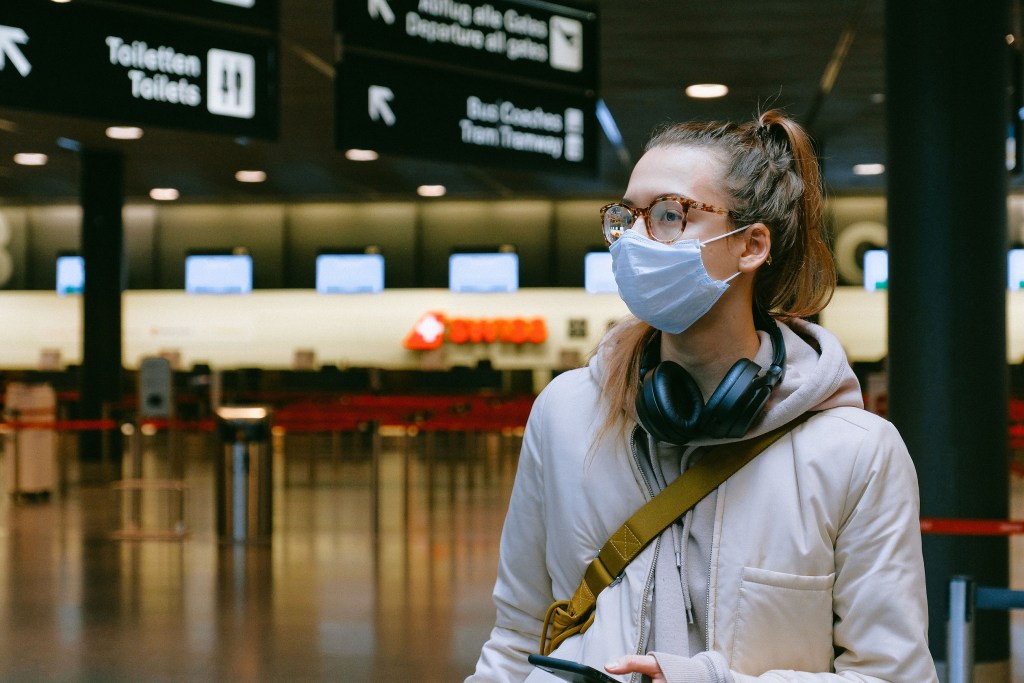The end of the COVID-19 pandemic may finally be in sight. As of the end of May, over 60 percent of the total U.S. population have had at least one vaccination dose, and with the summer right around the corner, people are antsy to start venturing out beyond their local grocery store. Travel is set to make a huge comeback this year, but is it safe, even if you’re vaccinated? Do you still need to quarantine if you do plan to take a trip? Keep reading to learn more about traveling when you’re fully vaccinated, which regulations still apply, and how to be as safe as possible.

Can people who are vaccinated travel?
Per the current CDC guidelines, fully vaccinated people are less likely to contract and spread the coronavirus and can travel within the United States at a lower risk to themselves. For international travel, it’s crucial to consider the state of the crisis in the destination to determine whether it’s safe to visit. Remember, you are not fully vaccinated until two weeks after your second dose of a two-dose vaccine (Pfizer or Moderna) or two weeks after a single-dose vaccine (Johnson & Johnson).
Of course, no vaccine is 100% effective at preventing disease. Pfizer has a 95% efficacy, Moderna is 94.1% effective, and Johnson & Johnson has a 72% overall efficacy. So, yes, there is still a chance you could become sick even if you are vaccinated. The risk still largely depends on your age and other health factors, but you can limit your chance of getting sick by wearing a mask and social distancing. If you’re considered high risk, you may want to reconsider your summer trip until your destination has reached herd immunity. While it is safe for many vaccinated people to travel this year, your decision should be based on your personal risk tolerance.
Where can you travel?
In the United States, fully vaccinated travelers can visit any state with relative ease. On the whole, the CDC states that fully vaccinated domestic travelers do not need to quarantine or take a viral COVID test before or after travel, unless required by local or state governments. Some states and local governments have other unique travel requirements, like health forms and mandatory masking. Before heading out on your vacation, double-check with the regulations for your destination. Though the CDC shared general guidance, each state has the final say on these travel restrictions and safety precautions.
If you’re traveling internationally, you should also check the local requirements. Some countries are not yet allowing travelers from the U.S. to visit at all, while others, like Belize, Iceland, and Seychelles, are letting vaccinated tourists from America visit without testing or quarantining. These restrictions are updated frequently, so be sure to review them closer to your departure date. As of right now, the CDC still recommends international travelers take a COVID test within three to five days of arrival back in the states regardless of vaccination status. However, they do not need to quarantine if negative.

Do you still need to wear a mask, quarantine, or get tested?
Though fully vaccinated people do not generally need to wear a mask indoors, they are still required on airplanes, trains, buses, and other types of public transportation as well as hospitals and long-term care facilities. Further, you can gather and attend outdoor activities without your mask unless you are at a crowded venue like a concert or sporting event. If you are not fully vaccinated, continue wearing a mask and social distancing, both indoors and outdoors. No matter your vaccination status or the CDC recommendations, some indoor facilities may still require people to wear a mask, so keep an eye out for these requirements.

Other ways to stay safe while traveling
Here are a few more tips to help you stay safe and healthy while traveling domestically and internationally:
- Continue wearing your mask on public transportation, indoors, and in crowded outdoor areas.
- Ensure your mask fits snugly over your nose and mouth.
- Try to keep a distance of at least six feet between you and others when it’s possible.
- Wash your hands frequently with soap and water for at least 20 seconds, especially after going to the bathroom, coughing, sneezing, or blowing your nose.
- If you’re driving, try to make as few stops as possible.
- Pack extra hand sanitizer, spare masks, and sanitizing wipes in your carry-on bag or purse.
- Don’t touch your face, particularly your eyes, mouth, and nose.
- Reduce contact with anyone who’s sick or has been exposed to the virus.
- If you or anyone you’re traveling with doesn’t feel well, stay home and get tested.
Travel is back (for fully vaccinated people, at least)! While you can finally take that vacation you’ve been waiting for, it’s still vital to take certain precautions so you, your family, and anyone you come into contact with can stay safe. If you are planning to take a vacation this summer, make sure you are following all of the guidelines laid out by the CDC and the local government of your destination. To stay even safer, continue wearing your mask, social distancing, and following the tips above. Safe travels!
BlissMark provides information regarding health, wellness, and beauty. The information within this article is not intended to be medical advice. Before starting any diet or exercise routine, consult your physician. If you don’t have a primary care physician, the United States Health & Human Services department has a free online tool that can help you locate a clinic in your area. We are not medical professionals, have not verified or vetted any programs, and in no way intend our content to be anything more than informative and inspiring.



